Premium Only Content
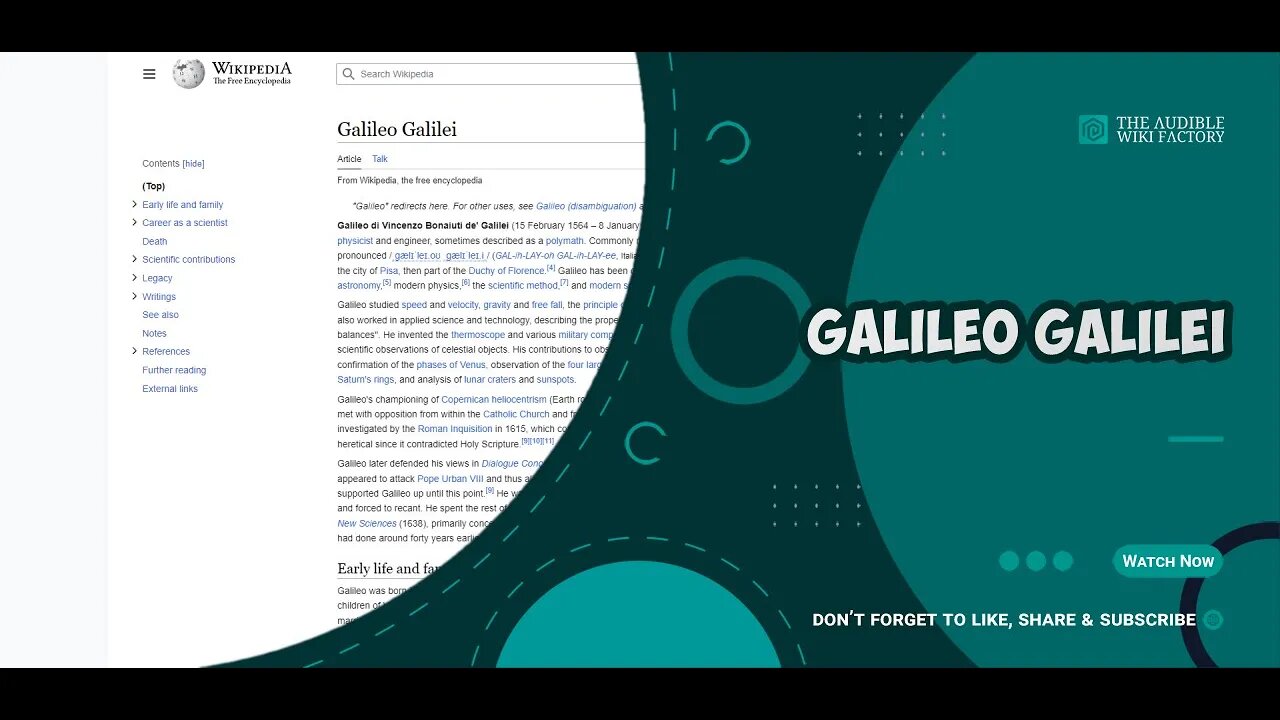
Galileo di Vincenzo Bonaiuti de' Galilei was an Italian astronomer, physicist and engineer,
Galileo di Vincenzo Bonaiuti de' Galilei was an Italian astronomer, physicist and engineer, sometimes described as a polymath. Commonly referred to as Galileo, his name was pronounced (GAL-ih-LAY-oh GAL-ih-LAY-ee, Italian: [ɡaliˈlɛːo ɡaliˈlɛi]). He was born in the city of Pisa, then part of the Duchy of Florence. Galileo has been called the "father" of observational astronomy, modern physics, the scientific method, and modern science.
Galileo studied speed and velocity, gravity and free fall, the principle of relativity, inertia, projectile motion and also worked in applied science and technology, describing the properties of pendulums and "hydrostatic balances". He invented the thermoscope and various military compasses, and used the telescope for scientific observations of celestial objects. His contributions to observational astronomy include telescopic confirmation of the phases of Venus, observation of the four largest satellites of Jupiter, observation of Saturn's rings, and analysis of lunar craters and sunspots.
Galileo's championing of Copernican heliocentrism (Earth rotating daily and revolving around the Sun) was met with opposition from within the Catholic Church and from some astronomers. The matter was investigated by the Roman Inquisition in 1615, which concluded that heliocentrism was foolish, absurd, and heretical since it contradicted Holy Scripture.
Galileo later defended his views in Dialogue Concerning the Two Chief World Systems (1632), which appeared to attack Pope Urban VIII and thus alienated both the Pope and the Jesuits, who had both supported Galileo up until this point. He was tried by the Inquisition, found "vehemently suspect of heresy", and forced to recant. He spent the rest of his life under house arrest. During this time, he wrote Two New Sciences (1638), primarily concerning kinematics and the strength of materials, summarizing work he had done around forty years earlier.
EARLY LIFE AND FAMILY
Galileo was born in Pisa (then part of the Duchy of Florence), Italy, on 15 February 1564, the first of six children of Vincenzo Galilei, a lutenist, composer, and music theorist, and Giulia Ammannati, who had married in 1562. Galileo became an accomplished lutenist himself and would have learned early from his father a scepticism for established authority.
Three of Galileo's five siblings survived infancy. The youngest, Michelangelo (or Michelagnolo), also became a lutenist and composer who added to Galileo's financial burdens for the rest of his life. Michelangelo was unable to contribute his fair share of their father's promised dowries to their brothers-in-law, who would later attempt to seek legal remedies for payments due. Michelangelo would also occasionally have to borrow funds from Galileo to support his musical endeavours and excursions. These financial burdens may have contributed to Galileo's early desire to develop inventions that would bring him additional income.
When Galileo Galilei was eight, his family moved to Florence, but he was left under the care of Muzio Tedaldi for two years. When Galileo was ten, he left Pisa to join his family in Florence and there he was under the tutelage of Jacopo Borghini. He was educated, particularly in logic, from 1575 to 1578 in the Vallombrosa Abbey, about 30 km southeast of Florence.
NAME
Galileo tended to refer to himself only by his given name. At the time, surnames were optional in Italy, and his given name had the same origin as his sometimes-family name, Galilei. Both his given and family name ultimately derive from an ancestor, Galileo Bonaiuti, an important physician, professor, and politician in Florence in the 15th century. Galileo Bonaiuti was buried in the same church, the Basilica of Santa Croce in Florence, where about 200 years...
LINK TO ARTICLE: http://en.wikipedia.org/wiki/Galileo_Galilei
TAGS: Galileo Galilei, 17th-century Italian inventors, Writers about religion and science, University of Pisa faculty, University of Pisa alumni, Theoretical physicists, Italian scientific instrument makers, Philosophers of science, University of Padua faculty, Natural philosophers, Members of the Lincean Academy, Italian Roman Catholics, 17th-century Italian physicists, 16th-century Italian inventors, Italian astrologers, Galileo affair, Experimental physicists, Discoverers of moons, Copernican Revolution, Christian astrologers, Catholicism-related controversies, Burials at Basilica of Santa Croce Florence, Blind people from Italy, Ballistics experts, Articles containing video clips, 17th-century male writers, 17th-century Latin-language writers, 17th-century Italian writers, 17th-century Italian mathematicians, 17th-century Italian astronomers, 16th-century Italian astronomers
#GeneralKnowledge #AudibleWikiFactory #Audible #Wikipedia #GalileoGalilei
-
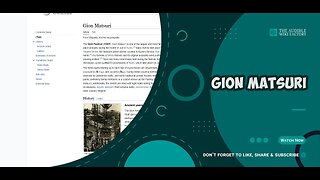 6:00
6:00
The Audible Wiki Factory
1 year agoThe Gion Festival is one of the largest and most famous festivals in Japan, taking place
399 -
 LIVE
LIVE
tacetmort3m
23 hours ago🔴 LIVE - SOLO RANK GRINDING CONTINUES - MARVEL RIVALS
3,431 watching -
![Shadows Of Chroma Tower, Alpha Playtest [Part 1]](https://1a-1791.com/video/fwe2/1d/s8/1/5/Q/U/n/5QUnx.0kob-small-Shadows-Of-Chroma-Tower-Alp.jpg) LIVE
LIVE
iViperKing
13 hours agoShadows Of Chroma Tower, Alpha Playtest [Part 1]
1,418 watching -
 54:05
54:05
TheGetCanceledPodcast
10 hours ago $10.50 earnedThe GCP Ep.11 | Smack White Talks Smack DVD Vs WorldStar, Battle Rap, Universal Hood Pass & More...
96.5K18 -
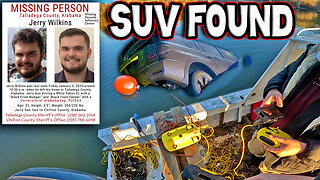 13:37
13:37
Exploring With Nug
14 hours ago $6.39 earnedSUV Found Underwater Searching For Missing Man Jerry Wilkins!
61.9K4 -
 2:58:21
2:58:21
xBuRnTx
9 hours ago1st Warzone Stream Online
46.7K2 -
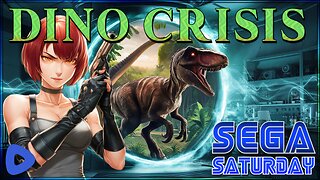 6:10:21
6:10:21
JdaDelete
1 day ago $8.31 earnedDino Crisis - Sega Saturday
89K4 -
 23:22
23:22
MYLUNCHBREAK CHANNEL PAGE
1 day agoUnder The Necropolis - Pt 5
81.6K33 -
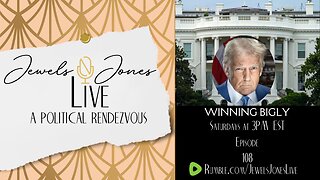 2:26:11
2:26:11
Jewels Jones Live ®
2 days agoWINNING BIGLY | A Political Rendezvous - Ep. 108
143K44 -
 2:04:49
2:04:49
Bare Knuckle Fighting Championship
4 days agoBKFC FIGHT NIGHT MOHEGAN SUN FREE FIGHTS
71.3K7